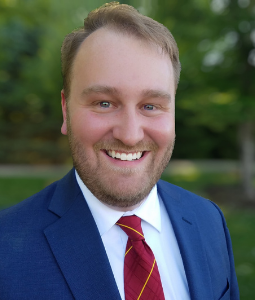 Alumni Profile: Dakota J Kaiser ’11
Alumni Profile: Dakota J Kaiser ’11
Degree(s): BS Psychology and Biology UW–Madison; MS Clinical Mental Health Counseling, Marquette University; PhD Counseling Psychology, Iowa State University
Current Occupation: Clinical Director of Behavioral Health, Bridge Community Health Clinic
What are some of the benefits of your psychology degree?
My undergraduate degree from the University of Wisconsin gave me an amazing foundation for my continued studies a career as a psychologist. I received a well rounded education focused on understanding the sifting and winnowing of scientific processes and applying research to solve real world problems. Working in an integrated care setting drawing from rural communities, my ability to obtain, evaluate, and apply scientific information within and outside of my own areas of research and expertise helps me work effectively with an interdisciplinary team and serve people from diverse backgrounds with a wide variety of presenting concerns. Further, the liberal arts education I received at UW exposed me to wide array of content while developing skills in critical thinking, communication, creative problem solving, project management, and more. As a leader of clinic and department, I use these skills daily working with my team and community partners.
How did you find your way to your current profession?
I was raised in a family with a strong value for helping others. My experience at UW, embracing the Wisconsin Idea of applying knowledge to real problems in our communities continued to shape my interest in an applied field of psychology. As I continued my academic journey my foundational training as an undergraduate in psychology and biology opened opportunities to train and practice within health psychology and integrated care practices.
What advice would you give to students graduating with a psychology degree?
Find ways to be helpful. The world needs bright and talented thinkers of all sorts. Your education has prepared you to do that. If you maintain a stance of always trying to find ways to be helpful, doors will open and opportunities will continue to present themselves. Next, be curious. Be curious in trying to understand people and problems to gain a deeper understanding that will lead to meaningful ideas and relationships. Reach out to others you hope to emulate to learn from them and benefit from their wisdom. The desire to learn can be the best networking tool.
If interested, please list an identity or group membership of which you are particularly proud:
First Generation College Student, Transfer Student from UW Colleges